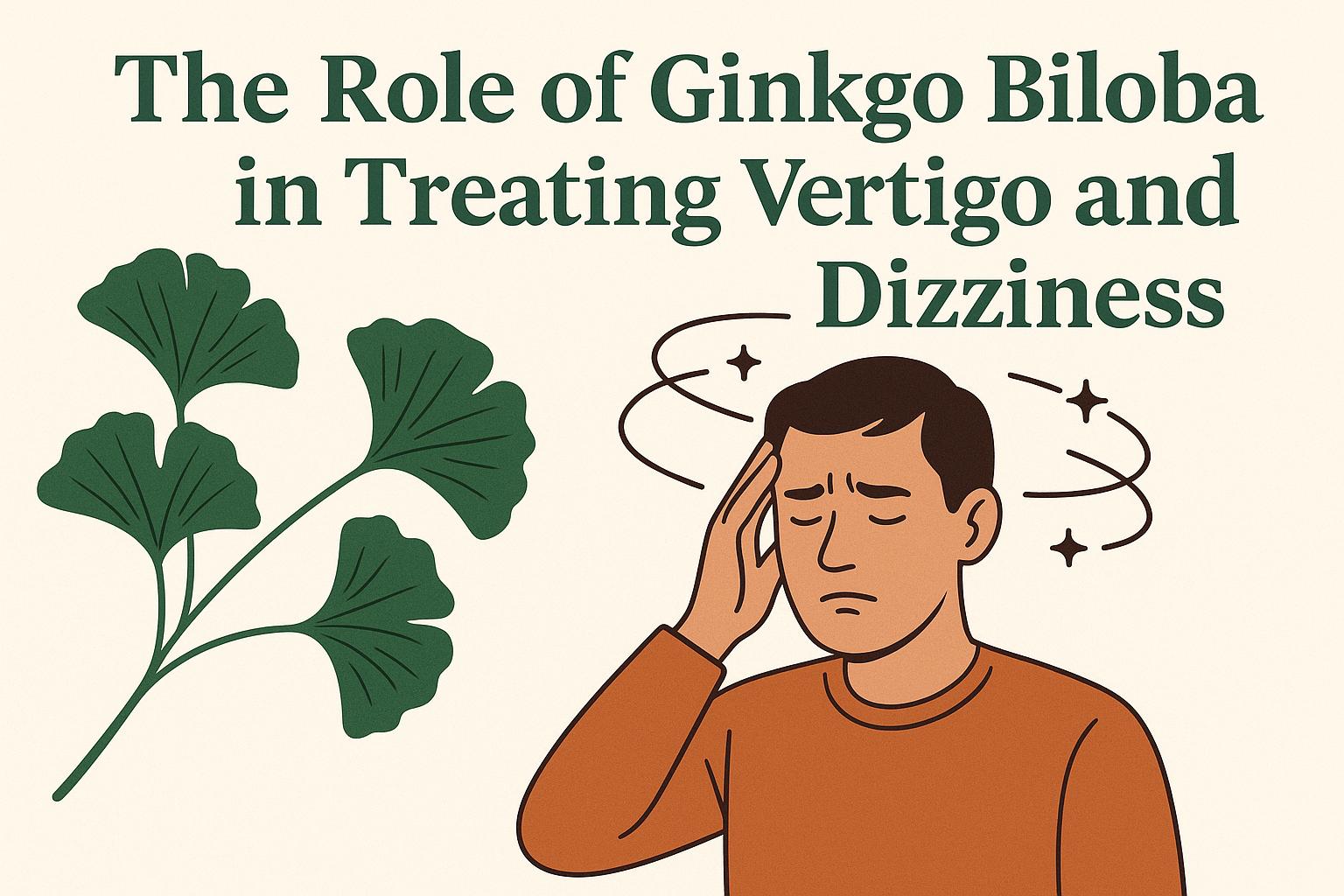The Role of Ginkgo Biloba in Addressing Vertigo and Dizziness
The medicinal use of Ginkgo biloba ranks prominently in traditional medicine, courtesy of its status as one of the oldest living tree species. The extract sourced from the leaves of Ginkgo biloba is particularly notable for its array of potential therapeutic benefits. Among these purported uses is its potential role in the treatment of vertigo and dizziness—symptoms that, if persistent, can significantly degrade an individual’s quality of life and overall functionality.
Understanding Vertigo and Dizziness
Vertigo and dizziness are primarily symptoms rather than standalone medical conditions. Vertigo typically manifests as a spinning sensation, which can be disorienting and often causes nausea. In contrast, dizziness can be described as a feeling of unsteadiness or lightheadedness. Both symptoms can originate from a broad spectrum of underlying causes, encompassing inner ear disturbances, impaired blood flow, neurological conditions, and even psychological factors. Therefore, obtaining a comprehensive diagnosis from a healthcare provider is crucial to ascertain and address the underlying cause effectively.
How Ginkgo Biloba Works
The notable components that potentially contribute to the benefits of Ginkgo biloba are its active compounds, which primarily include flavonoids and terpenoids. These compounds are believed to support both cognitive and circulatory health. This support is crucial, especially in managing symptoms like vertigo and dizziness, which can be directly linked to inadequate blood circulation to the brain or neuronal damage. Some research indicates that Ginkgo biloba may facilitate enhanced cerebral blood flow and provides protection against neuronal damage, contributing to its therapeutic potential.
Scientific Evidence
A considerable amount of scientific investigation has focused on assessing the efficacy of Ginkgo biloba in addressing vertigo and dizziness. For instance, research published in the journal Clinical Otolaryngology documented symptomatic improvements in patients suffering from chronic vertiginous conditions when they were administered Ginkgo biloba extract. Such outcomes are most likely attributable to its vasodilatory and neuroprotective properties, which promote better blood flow and protection to the neural structures involved in balance and equilibrium.
Additionally, another notable study published in the International Journal of Clinical Pharmacology and Therapeutics highlighted that participants who used Ginkgo biloba extract exhibited improved balance and experienced a noticeable reduction in dizziness symptoms in comparison to a placebo group. These studies provide promising insights; nevertheless, individual responses can significantly vary. Consequently, it is crucial to acknowledge that further comprehensive research is necessary to establish definitive conclusions and recommendations.
Considerations and Recommendations
When contemplating the use of Ginkgo biloba as a supplement, it is imperative for individuals to consult with a healthcare professional. This is crucial due to potential interactions with various medications, such as blood thinners, and possible side effects, which may include stomach discomfort or headaches. Moreover, the quality and purity of Ginkgo biloba supplements can vary widely, making it essential to choose products from reputable sources to ensure efficacy and safety.
Additional Information
For those seeking further information on Ginkgo biloba and its potential therapeutic uses, a wealth of comprehensive clinical studies from credible medical journals and trusted health organizations are available. Resources like the National Center for Biotechnology Information and the Mayo Clinic provide valuable insights regarding ongoing research and evidence-based recommendations. These resources are instrumental in informing both healthcare professionals and consumers about the nuances of using Ginkgo biloba as an adjunct therapy.
Conclusion
In summary, Ginkgo biloba holds promise as a complementary therapy for managing vertigo and dizziness due to its circulation-enhancing and neuroprotective benefits. However, it is imperative to approach its use with diligent caution and under the supervision of medical professionals. Such guidance ensures that Ginkgo biloba can be safely and effectively incorporated into a broader treatment regimen, tailored to the specific needs and conditions of the individual patient. Recognizing the full potential of Ginkgo biloba necessitates a balanced understanding of its benefits, limitations, and the contextual needs of each user, ensuring a beneficial outcome in the realm of symptom management.

